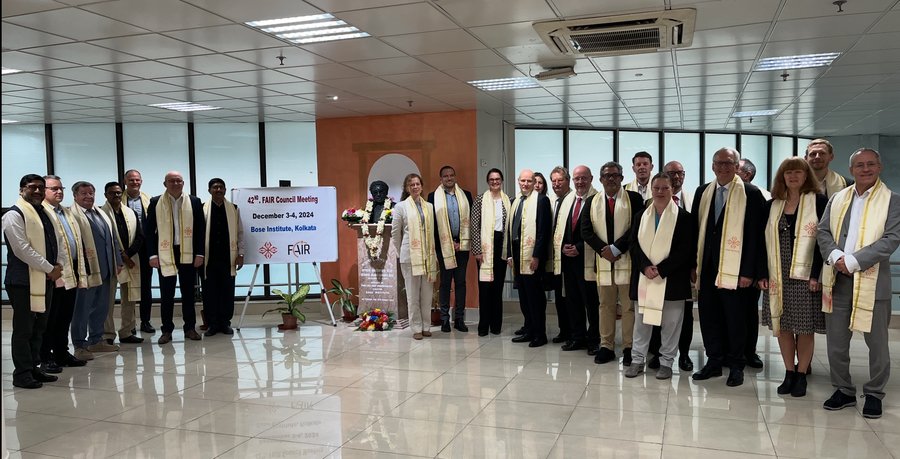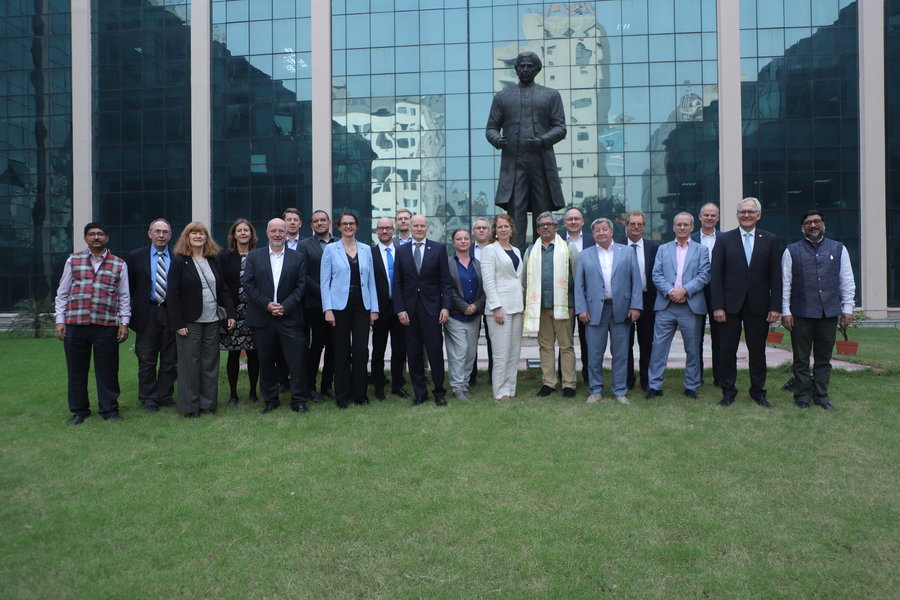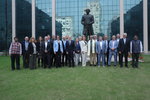Pathbreaking decisions by the FAIR shareholders
FAIR Council meets in India for the first time
19.12.2024 |
In an extremely constructive and productive FAIR Council meeting, the shareholders of FAIR made key decisions for the further realisation and future commissioning of the FAIR facility. The meeting was held for the first time at FAIR's Indian shareholder, the Bose Institute in Kolkata on December 3 and 4, 2024. India is the third largest shareholder of FAIR GmbH and an extremely important technology and science partner. At the FAIR Council Meeting, Professor Thomas Nilsson was also warmly welcomed by the shareholders as the new Scientific Managing Director of FAIR.
The FAIR Council is the highest decision-making body of FAIR GmbH. It consists of the shareholders from nine countries. At their most recent meeting, they confirmed their joint goal of commissioning the FAIR facility with the First Science Plus program by 2028. Key decisions were made on the procurement and production of high-tech components, such as the engineering for the technical building installations for the CBM experiment, as well as the modalities for a smooth commissioning phase. The necessary financial commitments were made or initiated by the shareholders.
‘FAIR will open new dimensions in basic research in physics and application-oriented fields. Around 3,000 scientists from over 50 countries will conduct research at FAIR and we can expect groundbreaking results. We are all looking forward to the commissioning of the FAIR facility,’ says Thomas Nilsson, the new Scientific Managing Director of FAIR and GSI.
The First Science Plus program includes the underground SIS100 accelerator ring with a circumference of 1100 meters. It accelerates ions of all elements to almost the speed of light, enabling a unique research program. This is connected to the Super-FRS separator, which generates particle beams from unstable rare isotopes that only exist in the outer universe. These can be studied in the High-Energy NUSTAR Cave so that completely new knowledge about processes inside stars can be gained, e.g. on the question of how chemical elements are formed naturally. The FAIR research program First Science Plus also includes the CBM experiment, which enables the unprecedented investigation of hot compressed matter as it occurs in neutron stars. Neutron stars are key objects for our fundamental understanding of the entire universe.
The FAIR Council meets twice a year, usually at the FAIR location in Darmstadt. The perfect organisation and extraordinary hospitality of the Indian Bose Institute, which hosted the meeting this time, are a perfect example of an international joint project such as FAIR. It shows once again how harmoniously and co-operatively the partners in the FAIR project work together.
As the third largest shareholder, India is one of FAIR's most important partner countries. Dozens of institutions are significantly involved in the scientific research program as well as in the development and production of high-tech components. India plays a crucial role in the scientific program of CBM and others. They are also at the forefront of the development and production of ultra-high vacuum chambers, beam catchers, IT and diagnostic cables and ultra-stable power converters.
FAIR is one of the largest projects and one of the most innovative high-tech facilities for international cutting-edge research worldwide. FAIR will enable unique and multidisciplinary research, scientists from all over the world will perform a variety of novel experiments, from astrophysics to cancer research. FAIR is a talent factory and a magnet for the best minds in science and technology. The realisation of the FAIR facility is on track: The current stage of FAIR's civil construction has been completed. The technical building installations are already well advanced and the installation of the FAIR accelerator machine, which began in January 2024, is in full swing.
The key decisions now taken by the FAIR shareholders are a milestone for the further realisation steps of FAIR and the planned commissioning of the First Science Plus program in 2028.















